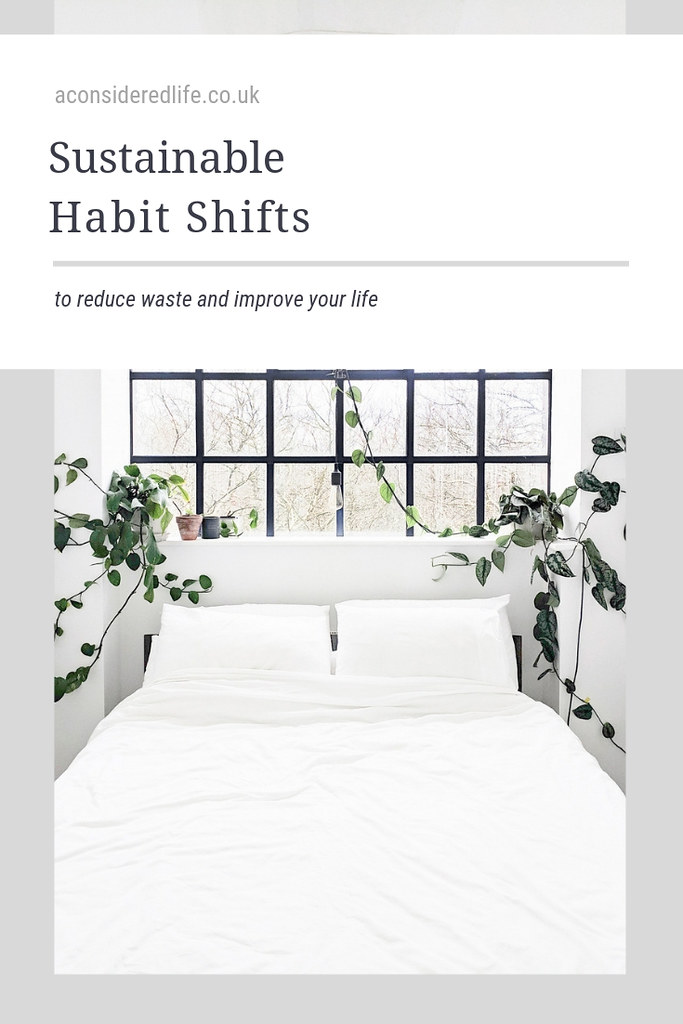
I think we all know by now that we should be using our own water bottles instead of buying bottled water, avoiding plastic straws, walking more instead of driving, and bringing a reusable cup to get our takeout coffee in. If you don't, here's something to read about that.
These habits are the lesser thought about shifts we can make, that are just as easy to implement as refusing a plastic straw but stretches us a little further so that we can make significant changes in what we do and what we buy to reduce the impact we have on the planet.
Old Habit: Eating meat and dairy regularly
New Habit: Eating more plant-based meals
For a lot of people, meat and dairy are relied on heavily at mealtimes. Learning how to cook plant-based meals at home or choosing the vegan option when dining out not only means you'll be exploring new flavours, it also lessens the impact you on have on planet - dramatically. The most you can make your diet plant-based the better it is for you, the animals, and the planet.
Old Habit: Buying hyped beauty products
New Habit: Switching to cruelty-free beauty
Some people aren't ready to adopt the vegan lifestyle yet and for others it's not a suitable option at all; one thing everyone can do, however, is make more compassionate choices about the products they buy. If your old habit was buying the most hyped beauty products (or any product, for that matter) make the switch to cruelty-free beauty, this directory of beauty products will help. There really is no excuse for any of us to continue supporting brands who test on animals.
Old Habit: Wasting food
New Habit: Meal planning
If you struggle to up everything in your fridge, find yourself throwing out expired food, or simply want to reduce the waste you create; meal planning is the best tool for combating food waste alongside composting food scraps. Instead of grabbing pre-packaged meals, plan a menu for the week (it can be a rough guideline) and write a shopping list that covers everything you need for mealtimes and snacks.
Old Habit: Impulse buying
New Habit: Wish-listing
50% of fast fashion garments are disposed of within a year. One of the biggest ways we can reduce our impact on the planet is to stop buying things. Instead of shopping as a hobby and impulse buying; make the habit shift to save items to a wishlist and give yourself time to think the purchase over. More often than not, within a couple of hours that urge to checkout will have waned and you'll be in a better position to make considered purchases. Spend money on things that matter to you, not just because you can/have money to spend. Learn more about sustainable shopping.
Old Habit: Using disposable kitchen products
New Habit: Reusable kitchen products
Disposable kitchen products like paper towels and clingfilm have become commonplace is the average household yet they're so easily replaced with durable, reusable, and multi-purpose alternatives. Make the habit shift to replacing these disposable items with reusable ones. This zero waste guide breaks down the most common switches you can make.
Old Habit: Buying books
New Habit: Borrowing books
If you're an avid reader, a habit shift that can reduce your impact is to borrow instead of buy books. While paperbacks and eBooks have a very similar environmental footprint, borrowing books creates a sharing economy that cuts down on consumption and the waste it causes. Three ways you can borrow books: from friends and family, from your local library, and listening to audiobooks.
Old Habit: Buying packaged foods
New Habit: Packing lunch
It's a conveniently easy habit to fall into, buying our lunch instead of making it but packing a lunch is just as easy and arguably more delicious. Whatever your favourite lunch to go is, learn how to make it at home (ideally in batches) and take it with you to work. Meal planning and batch prepping, instead of trying to make your lunch for the next day the night before, will help make this habit shift more achievable.
Old Habit: Using tea bags
New Habit: Brewing tea leaves
Loose leaf tea tastes better and doesn't contain the plastic or cause the excess waste that tea bags do. Didn't know there's plastic in your tea bag? Which? explains why. Although a lot of companies are making the switch to (almost) plastic-free tea bags, the majority are still not 100% biodegradable making them unsuitable for composting. The best option? Making the habit shift to loose leaf, this guide to brewing tea will show you how.
Old Habit: Using next day delivery services
New Habit: Waiting to have purchases delivered
Shopping online is often the more sustainable way to shop, providing we don't use the express delivery option and avoid returning items. Wait until you need to purchase several items and if you're not in a rush, opt for standard delivery. It's a really simple habit shift that's easy to implement, all it requires is a little patience.
Pin This Post
